
In our series Salary Stories, women with long-term career experience open up about the most intimate details of their jobs: compensation. It’s an honest look at how real people navigate the complicated world of negotiating, raises, promotions and job loss, with the hope it will give young people more insight into how to advocate for themselves — and maybe take a few risks along the way.
Been in the workforce for at least five years and interested in contributing your salary story? Submit your information here.
Age: 44
Location: New Jersey
Current industry and job title: VP of communications at a nonprofit, and fiction writer
Current salary: $203,000 (salary) + $15,000 (book income)
Number of years employed since school or university: About 22
Starting salary: $35,000
Biggest salary jump: From $120,000 base (plus $15,000 bonus) to $180,000 base (plus $25,000 bonus). This was a promotion from senior director of communications to VP of communications.
Biggest salary drop: From $190,000 (with 25% bonus) to $180,000 (with 14% bonus). I’ve taken a pay cut exactly once: when I left a corporate role to join a nonprofit organization.
Biggest negotiation regret: The job that required me to accept my biggest salary drop was initially designated to pay me even less ($150,000 base). After several interviews, I withdrew from consideration, citing the salary as my primary reason. They had been very upfront that the band was capped at $150,000 for equity reasons, and I believed them — I truly wasn’t trying to play a game!
But they were very excited by my candidacy and came back, saying they were willing to up-level the role for me. There was a series of somewhat chaotic emails flying at me from the head of HR, all during a busy workday for me, so I wasn’t fully focusing and was surprised at the turn of events. They asked me to name a number, and in retrospect I should have asked for more time to consider so I could really think about it. Instead I threw out $180,000, and they accepted. I deeply regret that move.
Best salary advice: There’s always more money available for talented staff. Period. That’s why I’ve always strived to make myself valuable, to build relationships, to be positive at work — usually, it pays off financially.
I lived in a shared house (with four roommates!) in New Jersey, and I commuted by bus through the Lincoln Tunnel. Things were tight but great.
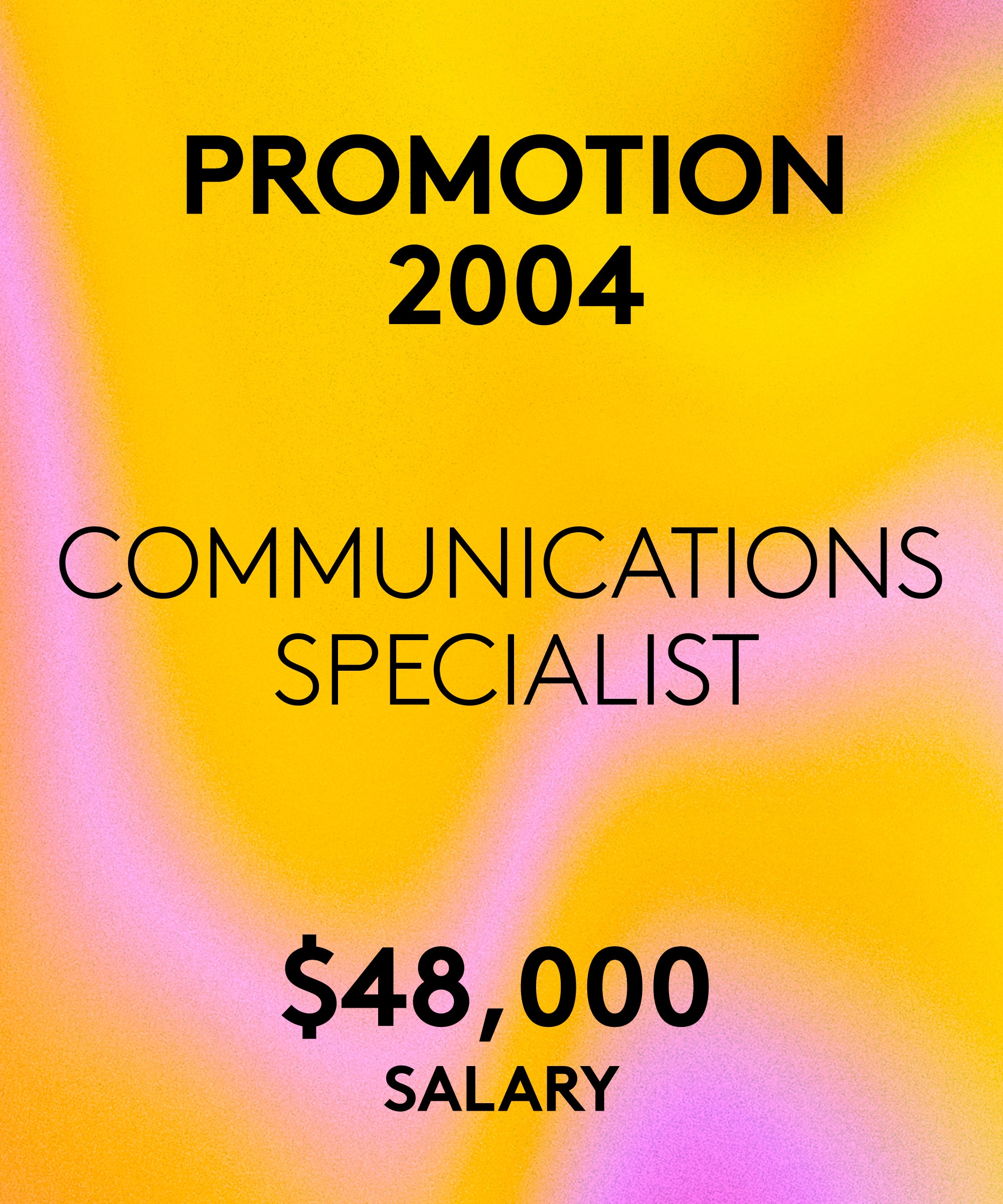
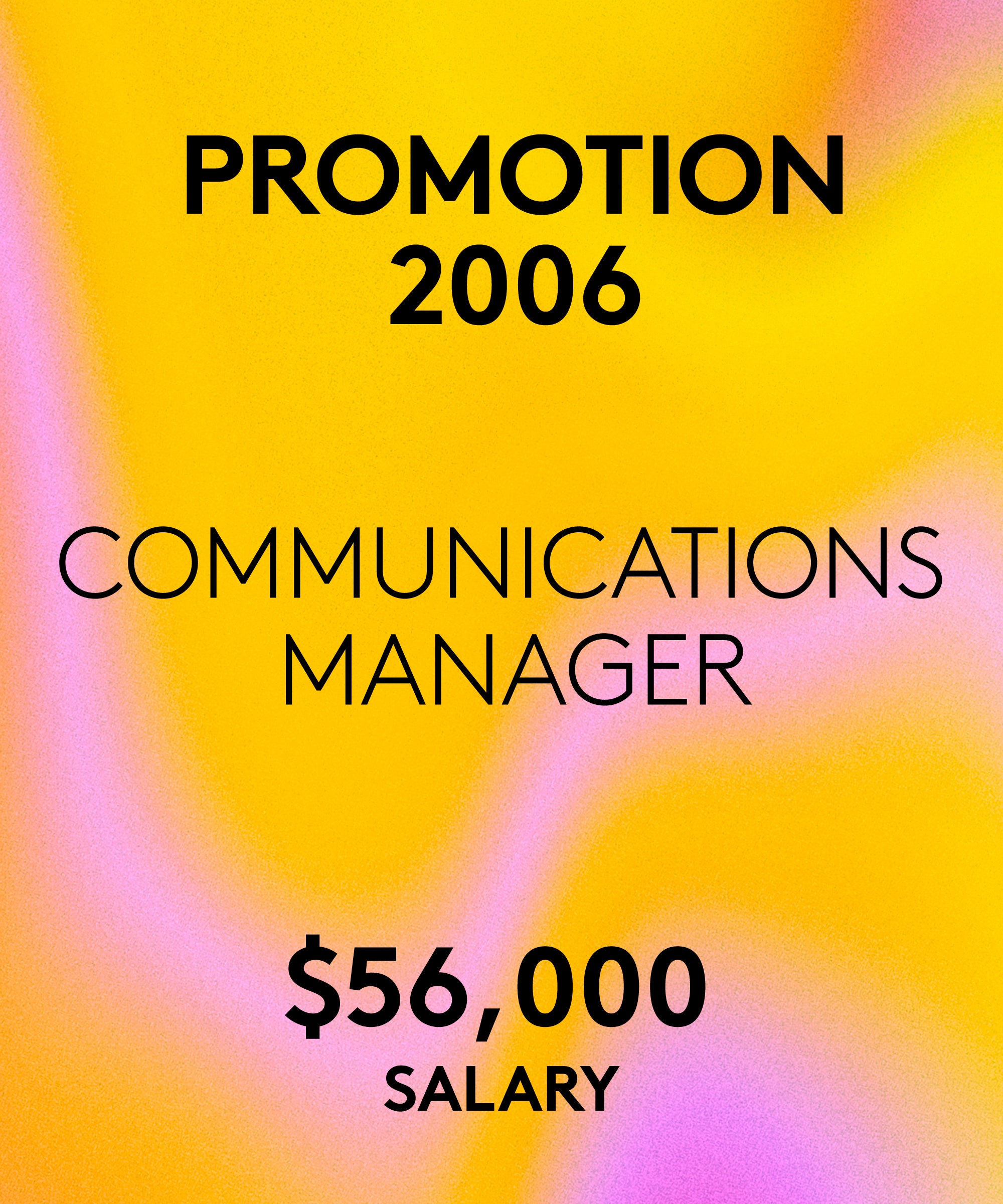
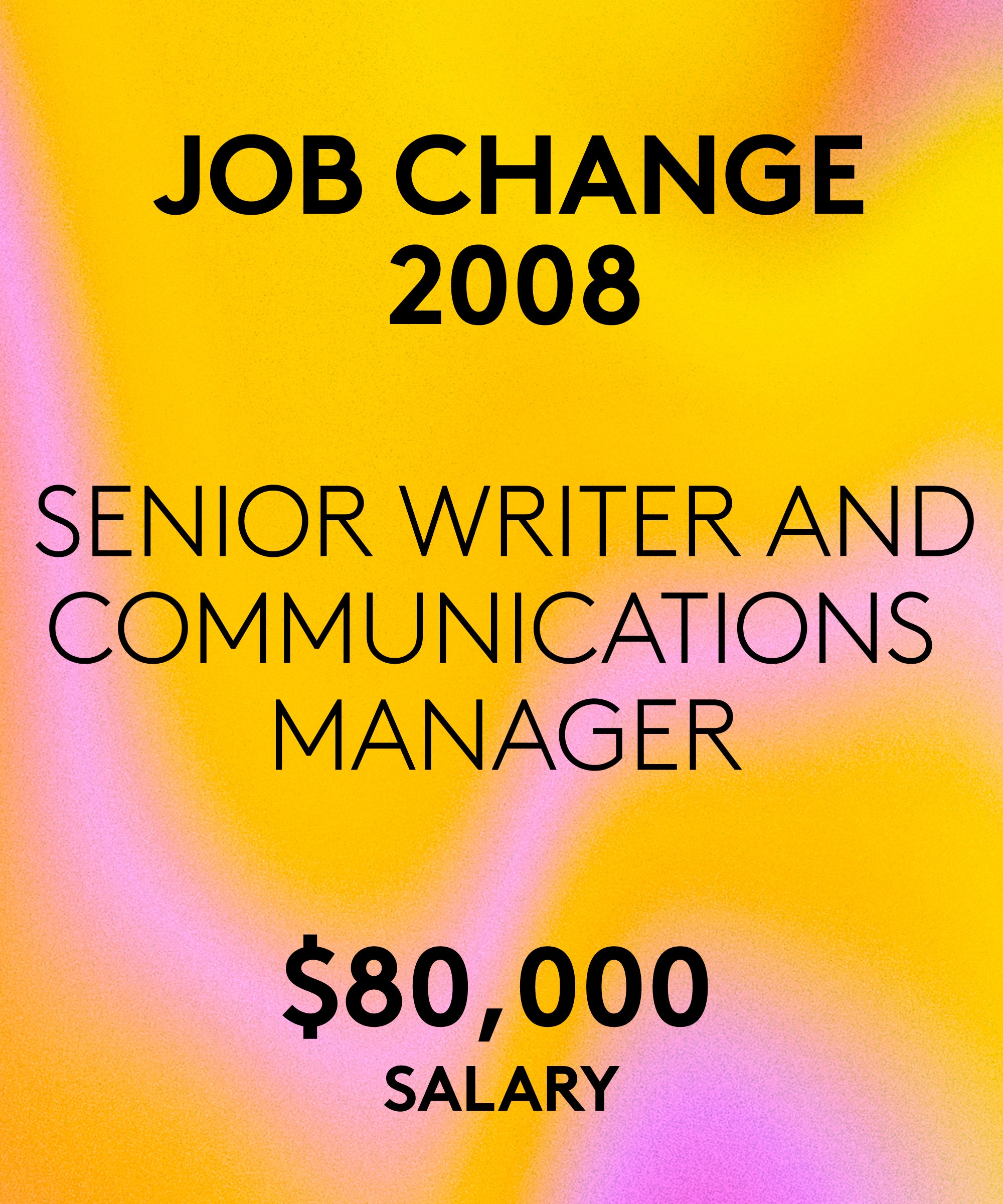
This felt like a ton of money to me — and rightfully so, as it was more than either of my parents ever made. It was a dream company to work for, and I worked very hard to impress them. I had no outside obligations besides some volunteer work — no kids, no partner, not even a pet — so I was able to dedicate a lot of myself to my work.
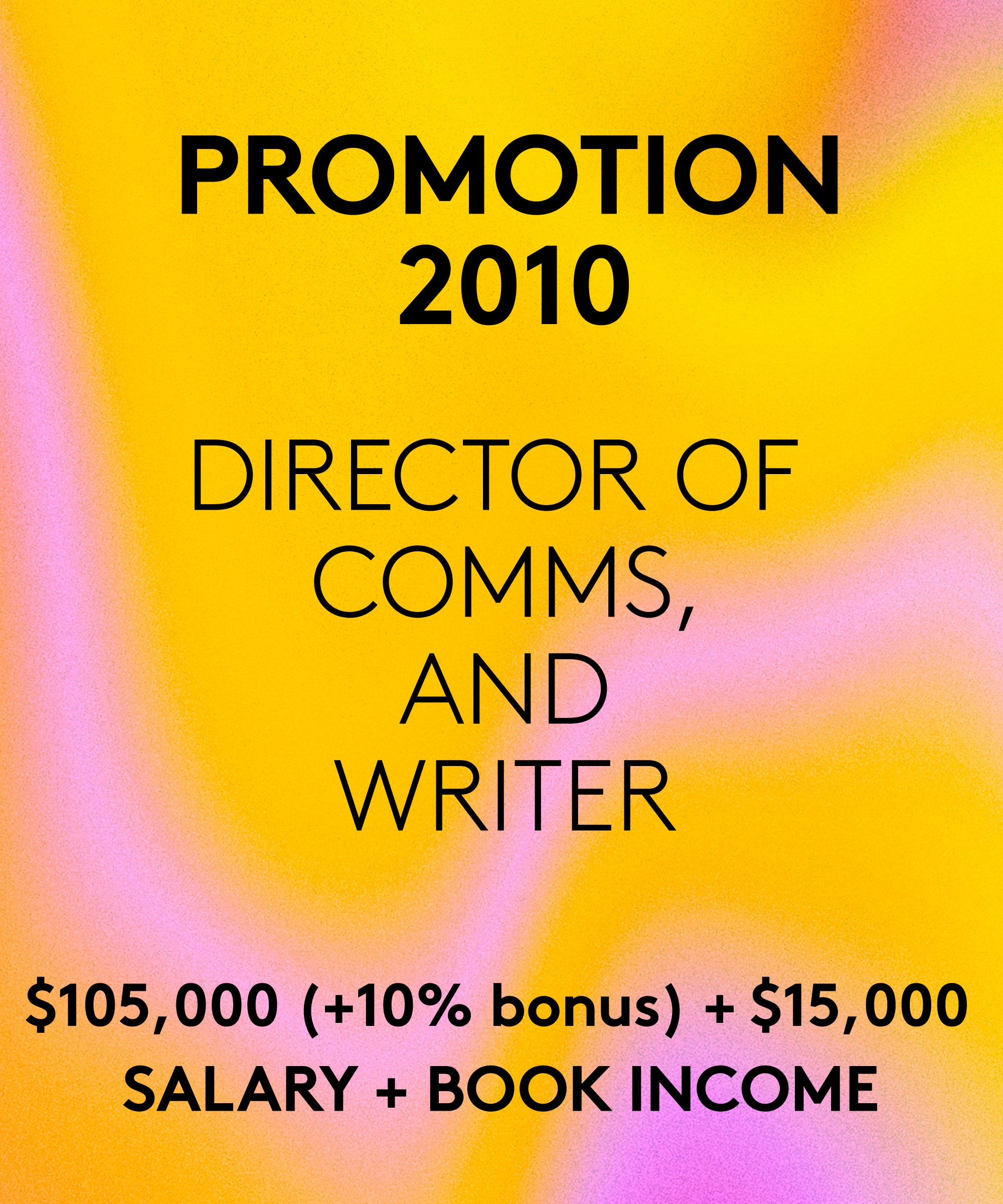
In addition, I began to moonlight as a writer — I scored my first ghostwriting contract and earned an extra $15,000 by ghostwriting a book (young adult fiction). I’d always had a desire to write fiction, and through my volunteer work at a writing-focused organization, I connected with an editor at a book packaging company. She asked me to try out for a project they had open, and I got it!
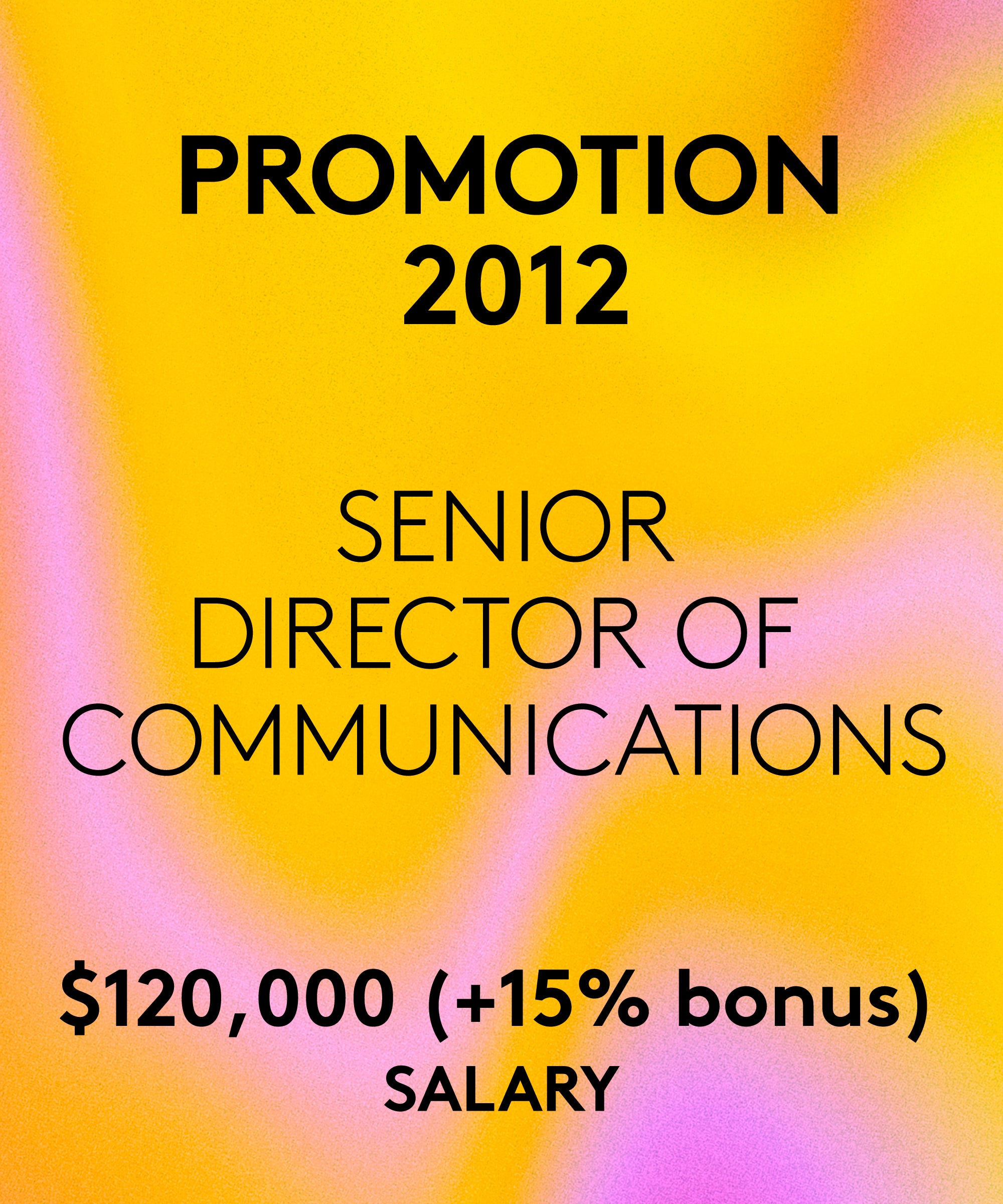
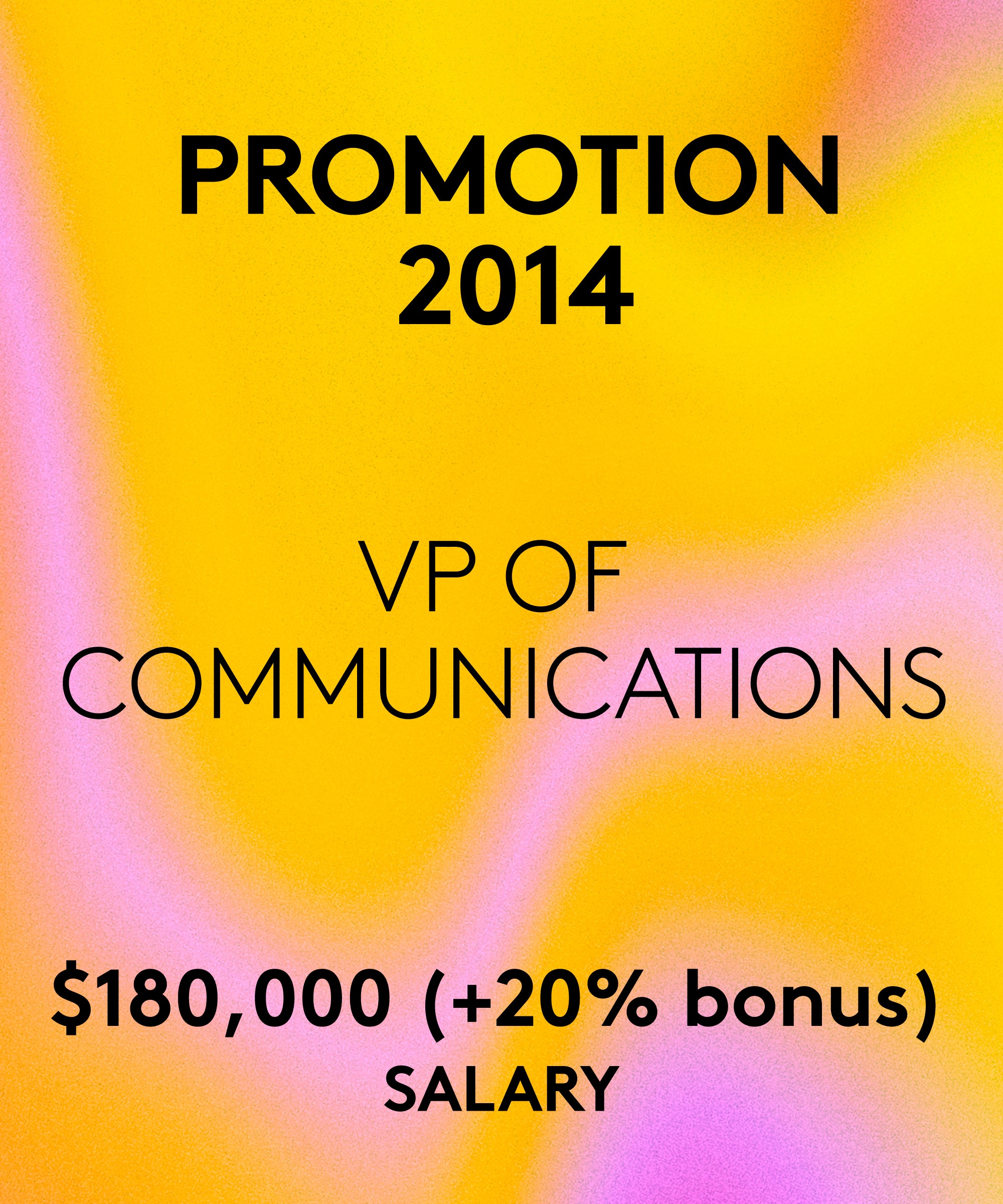

In 2019 I earned about $20,000 in consulting, and my book income was an additional $40,000.
The following year, I earned about $90,000 in consulting, and another $25,000 in book income.

I tried to be strategic about my next steps by focusing on what was missing from my communications expertise. I landed a job at an agency focused on communications, but I was underwhelmed by the type of work I was doing here, so I left the following year.

But the joke was on me, because this organization was a terrible fit. I had never worked harder and for a more demanding boss than at this job, and I did it for less money, which was a tough pill to swallow. I won’t take a pay cut again unless I’m absolutely certain it’s for the right role, or if I absolutely had to.
On the freelance side, my additional writing income was a bit higher because my first book was optioned for film! I also published a short story in an anthology. That extra writing money came to approximately $25,000.

I plan to stay in communications always, and I’ll keep writing as long as my agent can continue selling my books! I really like my current role, and given my instability the past few years, I want to stay here for at least two or three years.
However, I feel like I’ve been stuck in the same pay range and job level for so many years, and I am eager to level up! For my next move in a couple of years, I will be targeting a more senior title — something like SVP or chief level — and would ideally want to move into the $250,000-range for salary.
Like what you see? How about some more R29 goodness, right here?
I Made Way More Money After Quitting My Job
I Make $6,000 To $12,000 By Freelancing
I Went From $175,000 To $245,000 In One Job Change







